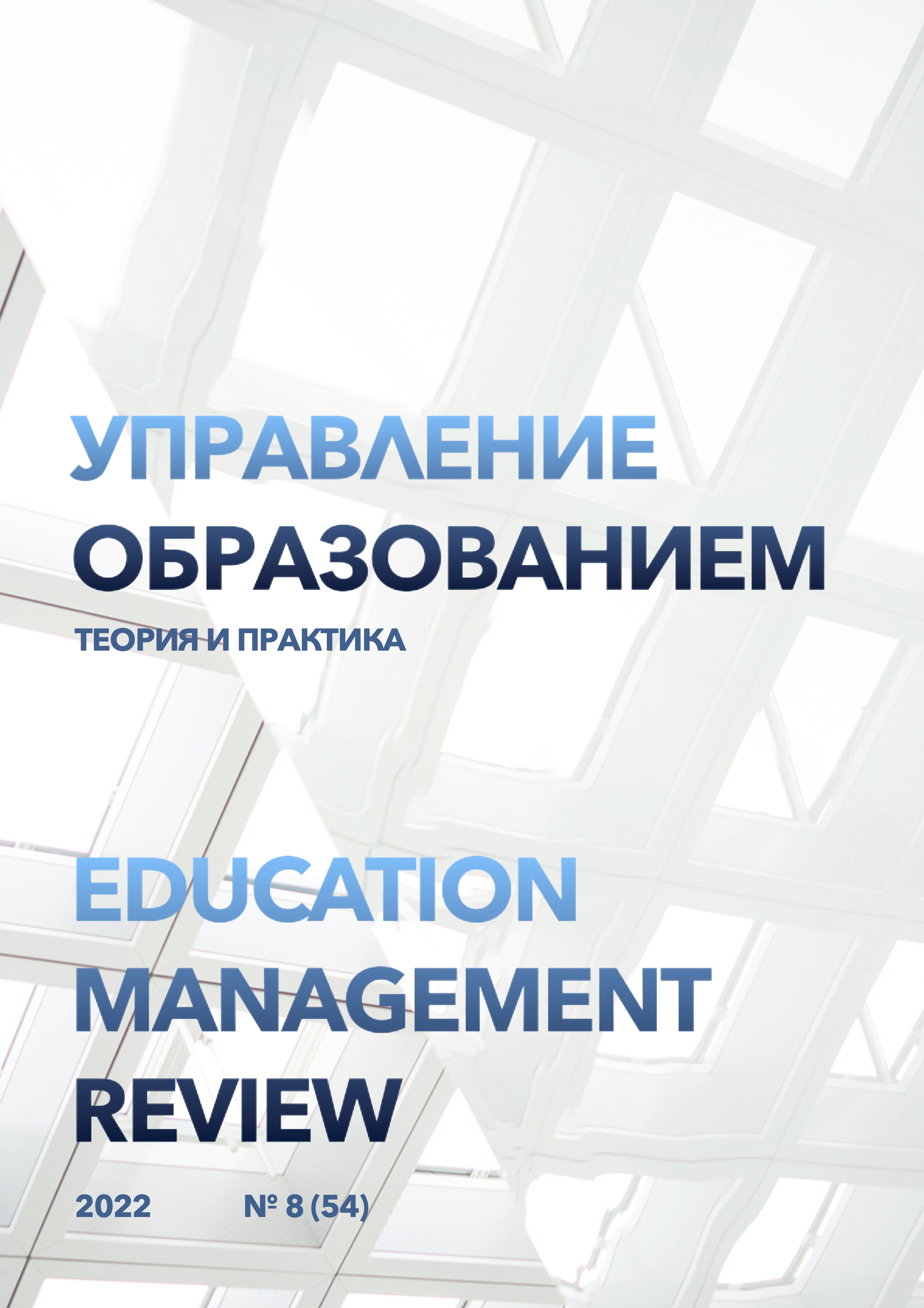Innovative technologies in higher education: social policy and development of international cooperation
DOI:
https://doi.org/10.25726/n5747-6111-7604-fKeywords:
development, university, structure, education, innovationAbstract
The functioning of a higher educational institution is determined primarily by the possibilities of its development and accumulation of resources to ensure the continuity of the educational and scientific process. If we consider the university itself as a learning environment, then the factor of readiness to expand the scope of activity and, accordingly, the procedure for forming a development strategy for the future becomes an important element. Currently, the effectiveness of the stages that assumed the expansion of their activities by opening branches has shown its inefficiency. The relevance of the research is due to the possibilities of forming an international framework for the development of universities. The novelty of the research is determined by the fact that the possibility of development for the university is not only in the formation of directed activities. International cooperation puts forward requirements for the construction of a new social and cultural environment, which is called the macro environment. The authors show that the opportunity for the formation of a macro-environment is achieved primarily by using tools for modeling the innovation environment at the university on a technological basis. The practical significance of the research is determined by the structural basis for improving the innovation environment at the university. The basis for the formation of the participation of all students in the formation of an innovative environment is shown. Each of the participants in the educational process can contribute to greater recognition of the importance of the university in the world.
References
Barlas, Y., & Diker, V. G. (2000). A dynamic simulation game (UNIGAME) for strategic university management. Simulation and Gaming, 31(3), 331–358. https://doi.org/10.1177/104687810003100302
Cameron, C., & Klopper, C. (2015). University lawyers: a study of legal risk, risk management and role in work integrated learning programmes. Journal of Higher Education Policy and Management, 37(3), 344–360. https://doi.org/10.1080/1360080X.2015.1034423
Contreras, F. A. G., Hidalgo, M. E. R., Millán, A. G. L., & Fernández, P. E. V. (2015). Agency Theory (AT): Theoretical assumptions applicable to university management [Théorie de l’agence (TA): Hypothèses théoriques applicables à la gestion de l’Université]. Innovar, 25(57), 11-25. https://doi.org/10.15446/innovar.v25n57.50324
Davey, B., & Tatnall, A. (2007). Research knowledge management can be murder: University research management systems. IFIP International Federation for Information Processing, 230, 19–25. https://doi.org/10.1007/978-0-387-69312-5_3
Dumitrascu, O., & Ciudin, R. (2015). Modeling factors with influence on sustainable university management. Sustainability (Switzerland), 7(2), 1483–1502. https://doi.org/10.3390/su7021483
Fiehe, S., Wagner, G., Schlanstein, P., Rosefort, C., Kopp, R., Bensberg, R., … Arens, J. (2014). Implementation of quality management in early stages of research and development projects at a university. Biomedizinische Technik, 59(2), 135–145. https://doi.org/10.1515/bmt-2013-0085
Han, S., & Zhong, Z. (2015). Strategy maps in university management: A comparative study. Educational Management Administration and Leadership, 43(6), 939–953. https://doi.org/10.1177/1741143214552860
Henderson, M. E., & Knott, T. L. (2015). Starting a Research Data Management Program Based in a University Library. Medical Reference Services Quarterly, 34(1), 47–59. https://doi.org/10.1080/02763869.2015.986783
Howells, J. R. L., Karataş-Özkan, M., Yavuz, Ç., & Atiq, M. (2014). University management and organisational change: A dynamic institutional perspective. Cambridge Journal of Regions, Economy and Society, 7(2), 251–270. https://doi.org/10.1093/cjres/rsu005
Kirkland, J. (2008). University research management: An emerging profession in the developing world. Technology Analysis and Strategic Management, 20(6), 717–726. https://doi.org/10.1080/09537320802426416
Kok, S. K., Douglas, A., & McClelland, B. (2009). University management and globalisation: An examination of the changing dynamics in UK universities. International Journal of Knowledge, Culture and Change Management, 9(3), 71–84. https://doi.org/10.18848/1447-9524/cgp/v09i03/49714
Lafuente-Ruiz-De-Sabando, A., Forcada, J., & Zorilla, P. (2018). The marketing orientation as a university management philosophy: A framework to guide its application. Cuadernos de Gestion, 18(2), 37–58. https://doi.org/10.5295/cdg.150576al
Leischnig, A., & Geigenmüller, A. (2020). Examining alliance management capabilities in university-industry collaboration. Journal of Technology Transfer, 45(1), 9–30. https://doi.org/10.1007/s10961-018-9671-7
Pellow, A., & Wilson, T. D. (1993). The management information requirements of heads of university departments: A critical success factors approach. Journal of Information Science, 19(6), 425–437. https://doi.org/10.1177/016555159301900602
Sánchez-Moreno, M., & Toussaint-Banville, M. (2017). Dilemmas in university academic management [Dilemas en la gestión académica universitaria]. Profesorado, 21(3), 201–218.
Sharrock, G. (2012). Four management agendas for Australian universities. Journal of Higher Education Policy and Management, 34(3), 323–337. https://doi.org/10.1080/1360080X.2012.678728
Valmorbida, S. M. I., Ensslin, S. R., Ensslin, L., & Ripoll-Feliu, V. M. (2015). University management with focus on multicriteria performance evaluation: Illustration in the Brazilian context. Journal Globalization, Competitiveness and Governability, 9(2), 61–75. https://doi.org/10.3232/GCG.2015.V9.N2.03
Veer Ramjeawon, P., & Rowley, J. (2020). Enablers and barriers to knowledge management in universities: perspectives from South Africa and Mauritius. Aslib Journal of Information Management. https://doi.org/10.1108/AJIM-12-2019-0362
Yonezawa, Y. (2018). Management of internationalization in japanese universities: Towards the development of collaborative relationship between academic and administrative staff. Higher Education Forum, 15, 39–62.
Zabalandikoetxea, S. U., & Merino, J. D. G. (2013). Factors dependent on university management as determinants of student performance: A multivariate analysis [Factores dependientes de la gestión universitaria como determinantes del rendimiento del alumno: Un análisis multivariante]. Revista de Educacion, (361), 456–489. https://doi.org/10.4438/1988-592X-RE-2013-361-229




